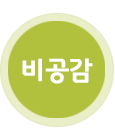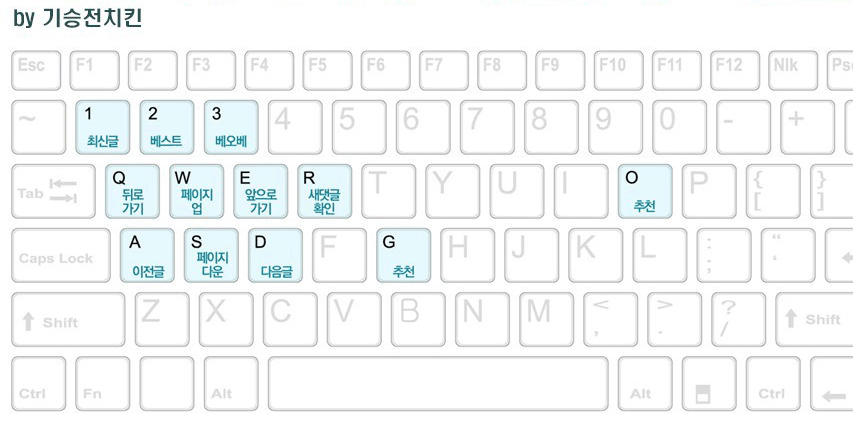백남기 씨, 독재자 애비에게 쫓겨나고 딸에게 살해당하고
-뉴욕 타임스, 박정희 딸 박근혜 반대 시위 중 부상으로 사망
-사건 관련 경찰관 단 한 명도 책임지지 않아
뉴욕타임스가 지난 일요일 사망한 농민 백남기 씨의 소식을 비중 있게 다루었다. 특히 뉴욕타임스는 백남기 씨가 박근혜를 반대하는 시위 중 부상으로 사망했다고 단언적으로 표현해 백 씨의 사망 원인이 시위 중 물대포로 인한 부상이라는 점을 명확하게 했다.
뉴욕타임스는 백남기씨의 사망 소식을 전하면서 ‘한국의 군부 독재자 박정희의 통치에 반대하는 시위로 학교에서 두 번 제적을 당했던 활동가 농민이 박정희의 딸 박근혜 대통령에 대한 반대 시위 중 입은 부상으로 일요일 사망했다’고 밝혀 독재자 애비에게 학교에서 쫓겨나고 독재자 딸 박근혜 정권에 의해 살해 당한 백 씨의 기구한 운명을 소개했다.
뉴욕타임스는 25일 ‘Activist in South Korea Dies of Injuries From Police Water Cannon-한국 활동가, 경찰 물대포에 부상 입고 사망’이라는 제목의 기사에서 “농민 백남기(68세) 씨는 지난 11월 박 대통령 정권 하에서 행해진 가장 큰 규모의 반정부 시위 중 경찰의 물대포를 맞았다”며 이후 그는 서울대학교 병원에 혼수상태로 남겨진 채, 박 대통령 정권에서 경찰의 잔혹성이 증가하고 집회의 자유가 손상되고 있다는 정부 비판가들이 주장하는 바의 상징이 되어왔다고 그 동안의 경과를 소개했다.
뉴욕타임스는 백 씨의 죽음이 반정부 시위로 이어질 수도 있다는 두려움에서 수천 명의 경찰이 서울대 병원에 배치됐다고 현장 소식을 전했다. 뉴욕타임스는 이례적으로 백 씨의 살아온 행적을 소개하며 독재자 박정희에 반대하다 두 번 제적 당한 일, 전두환 계엄군에 의해 체포 투옥, 그리고 지난 11월 박근혜의 독재적 운영방식에 반대하여 열린 시위에서 물대포에 맞아 혼수상태에 빠지게 된 일들을 상세하게 전했다.
뉴욕타임스는 ‘2013년 박 대통령이 임기를 시작한 이후, 야당과 다른 비판가들은 그녀가 나라를 독재자 아버지 시대로 회귀시키는 것을 비난해왔다’고 전한 뒤 백 씨의 딸 이름이 ‘민주화(“Democratization”)’라고 대비시키기도 했다.
물대포에 의해 살해 당한 것이 분명함에도 사인을 조작하기 위해 부검 운운하는 경찰에게 뉴욕타임스는 기사를 통해 ‘농민 백남기 씨는 지난해 11월 시위에서 경찰의 물대포를 맞았고, 지난 일요일 사망했다’고 명백히 밝히고 있다.
손바닥으로 하늘을 가리려는 박근혜와 그의 수하들. 그들의 손바닥으로 전 세계의 언론마저 가릴 수 있다고 생각하는 것은 아닌지.
----------------------------------------------
SEOUL, South Korea — An activist farmer who was expelled from school twice for protesting the rule of the military dictator Park Chung-hee of South Korea died on Sunday as a result of injuries he sustained while opposing Mr. Park’s daughter, President Park Geun-hye.
한국(서울) – 한국의 군부 독재자 박정희의 통치에 반대하는 시위로 학교에서 두 번 제적을 당했던 활동가 농민이 박정희의 딸 박근혜 대통령에 대한 반대 시위 중 입은 부상으로 일요일 사망했다.
The farmer, Baek Nam-gi, 68, was struck by a police water cannon in November during the largest antigovernment demonstration under Ms. Park. He had remained in a coma at Seoul National University Hospital since, becoming a symbol of what government critics call rising police brutality and the erosion of the freedom of assembly under Ms. Park.
농민 백남기(68세) 씨는 지난 11월 박 대통령 정권 하에서 행해진 가장 큰 규모의 반정부 시위 중 경찰의 물대포를 맞았다. 이후 그는 서울대학교 병원에 혼수상태로 남겨진 채, 박 대통령 정권에서 경찰의 잔혹성이 증가하고 집회의 자유가 손상되고 있다는 정부 비판가들이 주장하는 바의 상징이 되었다.
After the hospital announced that Mr. Baek had died of kidney failure on Sunday afternoon, hundreds of students and other supporters gathered there. Thousands of police officers were deployed to the hospital over fears that his death might lead to antigovernment protests.
백남기 씨가 일요일 오후 신부전증으로 사망했다고 서울대 병원측에서 발표한 후 수백 명의 학생들과 지지자들이 그곳에 모였다. 그의 죽음이 반정부 시위로 이어질 수도 있다는 두려움에서 수천 명의 경찰이 서울대 병원에 배치됐다.
In June, Maina Kiai, the special rapporteur at the United Nations on the rights to freedom of peaceful assembly and of association, cited Mr. Baek’s case in criticizing what he called an excessive use of water cannons by the police and shrinking space for exercising the right to peaceful assembly under Ms. Park.
평화적인 집회 및 결사의 자유 권리에 대한 유엔 특별보고관 마이나 키아이는 지난 6월, 박 정권하에서 경찰의 물대포 과잉 사용, 그리고 평화로운 집회를 가질 권리 행사의 어려움을 비판하며 백 씨의 사례를 인용했다.
“In footage made available to the special rapporteur, the water cannon was used against largely peaceful crowds. In certain cases, lone individuals were targeted, a use difficult to justify,” he wrote. “The case of Mr. Baek Nam-gi is a tragic illustration of this.”
“특별보고관에 제공된 화면에서 물대포는 대체적으로 평화로웠던 군중들을 향해 사용됐다. 때로는 혼자 서있는 개인을 타깃으로 했으며, 이는 물대포의 사용 이유를 정당화시키기 힘든 경우였다”며, “백 씨의 경우는 이를 보여주는 비극적인 사례다”라고 기술했다.
Mr. Baek was born in 1947 in Boseong in the rural southwest of South Korea. He was expelled from Chung-Ang University in Seoul in 1971 for leading a demonstration against Mr. Park’s deployment of troops on college campuses to intimidate student activists. He was later allowed to re-enroll but was soon on the run from the police for organizing protests against Mr. Park’s constitutional revision aimed at extending his dictatorship. While in hiding in a cathedral in Seoul, he became a Roman Catholic.
백남기 씨는 1947년 한국 남서부 농촌 보성에서 태어났다. 그는 대학생 활동가들에게 겁을 주려는 목적으로 대학교정에 박정희 대통령이 군대를 배치하는 것에 반대하는 시위를 주도했다가 1971년 서울 중앙대학교에서 제적당했다. 그는 후에 재등록을 하도록 허용되었지만, 곧 박정희의 독재연장을 목적으로 한 헌법개정(역주: 유신헌법)에 반대시위를 조직한 혐의로 경찰의 수배를 받게 됐다. 서울의 한 성당에 숨어있는 동안 그는 가톨릭 신자가 되었다.
He was expelled again from school in 1975 but returned after Mr. Park’s 18-year rule came to an end with Mr. Park’s assassination by his intelligence chief in 1979.
1975년 그는 다시 학교에서 제적을 당했지만 1979년 박정희 대통령이 중앙정보부장의 손에 살해되며 박정희의 18년 통치가 종식되고 난 후 대학으로 다시 돌아왔다.
Mr. Baek then led students in a march against Chun Doo-hwan, an Army major general who seized power in a coup after Mr. Park’s death. Mr. Chun’s martial-law troops arrested Mr. Baek during raids on school dormitories in 1980. He was expelled from school a third time and was later sentenced to two years in prison. He was freed in 1981.
백남기 씨는 이어서, 박정희의 죽음 이후 쿠데타로 권력을 잡은 군 장성 전두환에 반대하는 학생시위를 이끌었다. 전두환의 계엄군은 1980년 학교 기숙사를 급습하여 백남기 씨를 체포했다. 그는 세 번째로 학교에서 제적당했고 후에 2년 징역형을 선고받았다. 그는 1981년 석방되었다.
Unlike former student activists who entered politics and became national figures, Mr. Baek devoted himself to advocating for the rights of impoverished rural farmers.
정치에 입문하고 국가적 유명인사가 된 다른 학생 활동가들과는 달리 백남기 씨는 피폐한 시골 농부들의 권리를 지키는 일에 자신을 헌신했다.
Few other South Koreans had heard of Mr. Baek again until the news media reported that a farmer had been knocked unconscious by a police water canon in downtown Seoul in November. The water cannon continued to blast Mr. Baek as he lay on the ground and also blasted those who tried to drag him away. Doctors later reported that he had a cerebral hemorrhage that they suspected was caused by the water canon. Prosecutors are still investigating the case.
지난 11월 서울 시내에서 한 농민이 경찰의 물대포에 맞고 쓰러져 혼수상태에 빠졌다고 언론이 보도할 때까지 백 씨에 대해 아는 사람들은 많지 않았다. 물대포는 백 씨가 땅바닥에 누워 있을 때에도 계속해서 발사됐고 그를 끌어당기려고 시도한 사람들에게도 발사됐다. 의사들은 나중에 백 씨가 뇌출혈이 있었으며 이는 물대포에 의한 것으로 의심된다고 발표했다. 검찰은 여전히 이 사건을 조사 중이다.
The rally in November brought together tens of thousands of South Koreans with various political grievances, including what they called Ms. Park’s authoritarian style. Mr. Baek and other farmers joined the rally to urge the government to help halt the falling price of rice. The police fired water cannons and tear gas at protesters shouting for Ms. Park’s resignation.
11월에 열린 집회에는 박 대통령의 독재적인 국정운영 방식을 포함, 다양한 정치적 불만을 가진 수만 명의 사람들이 참가했다. 백 씨와 다른 농민들은 쌀 값 폭락을 막아줄 것을 정부에 촉구하기 위해 집회에 동참했다. 경찰은 박 대통령의 퇴임을 외치는 시위자들에게 물대포와 최루 가스를 발사했다.
Farmers had marched and held candlelight vigils to pray for Mr. Baek’s recovery, but their demand for a government apology was not met.
농민들은 백 씨의 회복을 위해 행진을 하고 촛불 시위를 열었으나 정부에 대한 그들의 사과 요구는 들어지지 않았다.
Instead, the police questioned 1,500 people who participated in the rally, while Ms. Park compared some of the demonstrators wearing masks to terrorists. The police also raided the offices of labor unions, which had helped organized the protest.
대신에, 박 대통령이 일부 시위자들을 마스크를 쓴 테러범들과 비교한 가운데 경찰은 해당 집회에 참여한 천 5백 명을 심문했다. 경찰은 집회 준비를 도왔던 노조 사무실들을 압수수색하기도 했다.
“His death increases the urgent need for the completion of a thorough, independent and impartial investigation into the excessive use of force on largely peaceful protesters, including Baek Nam-gi himself,” said Nicholas Bequelin, Amnesty International’s East Asia regional director. “To date, not a single officer involved in the case has faced consequences for their actions.”
국제 앰네스티 동아시아 사무소장 니콜라스 배클란은 “그의 죽음은 백남기 씨 자신을 포함하여 대체적으로 평화로웠던 시위자들을 상대로 과도한 무력이 사용되는 것에 대한 철저하고 독립적인 그리고 공정한 수사의 필요성을 더욱 증가시켰다”고 말했다. “지금까지 이 사건과 관계된 경찰관 단 한 명도 자신들이 저지른 행동이 가져온 결과에 책임을 지지 않았다.”
The government had no immediate response to Mr. Baek’s death.
정부는 백 씨에 죽음에 대해 즉각적인 반응을 보이지 않았다.
Since Ms. Park began her five-year term in early 2013, the political opposition and other critics have accused her of taking her country back to the days of her dictator father.
2013년 박 대통령이 임기를 시작한 이후, 야당과 다른 비판가들은 그녀가 나라를 독재자 아버지 시대로 회귀시키는 것을 비난해왔다.
Mr. Baek is survived by his wife, a son and two daughters, one of whom he named Minjuhwa, or “Democratization.”
백 씨는 아내, 아들 하나 딸 둘을 남겼으며 두 딸 중 한 명의 이름을 “민주화”로 지었다.
“My father was not one of those who wanted to be heroes,” Minjuhwa said in a recent Facebook posting. “He was just an activist who believed in what he did.”
민주화 씨는 최근 자신의 페이스북에 “내 아버지는 영웅이 되기를 바라는 그런 류의 사람이 아니었다”며 “그는 자신이 했던 일에 대해 신념을 가진 활동가였을 뿐이었다”라고 썼다.













